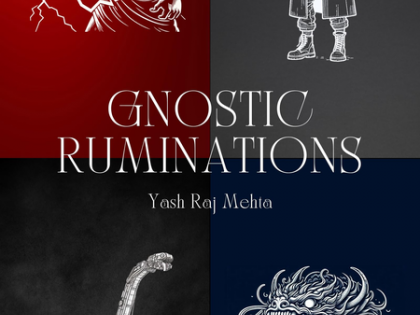Plumbing the profound with perspicacious poetics (Book Review)
By IANS | Updated: June 30, 2025 11:03 IST2025-06-30T10:59:14+5:302025-06-30T11:03:54+5:30
New Delhi, June 30 "Through smog and soot and horrid dust,/You will have to endure/To make a wage..." ...

Plumbing the profound with perspicacious poetics (Book Review)
New Delhi, June 30 "Through smog and soot and horrid dust,/You will have to endure/To make a wage..." This verse can evoke a more eloquent exposition of our polluted urban agglomerations and the imperative to brave the degraded air as we move around for our daily sustenance than the most well-researched report.
But apart from this distressing yet realistic depiction of contemporary urban problems, there are many more varied offerings from the same source.
Poetry, like all other literary genres, can be a very subjective choice. But, once in a while, comes a compendium that draws you in with its profound reflections on the human condition and its prime concerns - especially life and death, the world we inhabit, and what we have made of it. And then, the way it resurrects forgotten pantheons and peoples from the dimly-remembered recesses of world history and imbues them with a contemporary feel.
Even the title - "Gnostic Ruminations" (Book Leaf Publishing)- showcases the virtuosity, vivid storytelling, and vast imagination of young poet Yash Raj Mehta, with most of its 21 poems written in the course of a single day as part of a poetic competition. Some were pre-written for various occasions in the school of the teenage poet, and added due to the insight they offer into academic milestones and personalities.
Mehta, whose slim oeuvre is the outcome of his two years of dedicated poem-writing, terms the form "fascinating", quipping that if the old saying that a picture is worth a thousand words is reversed, the outcome will be poetry.
For this, he cites the great epics, including the Ramayana and the Mahabharata, using this form, and goes on further to prove his point, in these 20-odd poems spanning a range of subjects from the esoteric to the more familiar - yet vital.
Mehta's choice of style in most is not the usual rhyming structure, but blank verse, for our poetic prodigy contends that it "conveys information more smoothly", offering the case of leading translations of Virgil's "Aeneid" which use this particular style rather than resorting to couplets.
However, it's time to move beyond the background and the framework to cast a critical eye on a representative section of Mehta's verse.
We start from the deep end, entering the worlds of the Old Testament as we traverse the dire environs of the scriptural "The Valley of Hinnom" near Jerusalem, or Gehenna, the source word of the Arabic 'Jehannum', and ponder the weight of religious history and excesses it bears.
However, don't get worried, for Mehta then changes to the sonnet form to pay a tribute to the academic guides, then pens a poignant farewell to his school seniors, before switching to humour - and rhyme - to tell us about bedbugs.
This is the joy of the collection, for you never know what you can expect as you turn over the page.
All with his serious journeys into mythology and religion, Mehta, as said, occasionally returns to more commonplace and relatable things, and showcases a rare wit too, several times in the slim volume. "Criticism of Haikus" is a spirited example and must be read.
But along with the Holy Land, the Greece of "Zeus Giaskronou", of Babylonian and Norse gods, and serpents of various types, there are poems imbued with a concern for the environment and the planet, as the lines quoted at the onset show.
The anthology is not only a thought-provoking read, but also a quest as Mehta does not ease your way by providing footnotes, but leaves it to the reader to follow up to understand the required reference. So, along with the vivid tales, you can increase your knowledge too.
Disclaimer: This post has been auto-published from an agency feed without any modifications to the text and has not been reviewed by an editor
Open in app